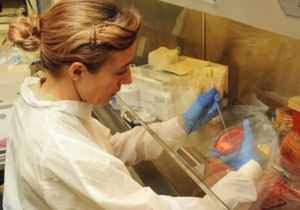News
Increasing numbers of Danes contracting blood infections
This article is more than 7 years old.
More people seem to be catching bacterial infections and, worryingly, many of these cannot be treated with antibiotics

Multi-resistant bacterial infections are putting an increasing strain on the health service (photo: USAF Christopher Stewart)
A newly-released Danmap report compiled by Statens Serum Institut and the Technical University of Denmark (DTU) reveals that the number of registered cases of bacterial infections of the blood is rising.
Last year, 10,795 cases were reported – an increase of 30 percent since 2009, DR Nyheder reports.
As well as higher numbers of cases, more of them are MRSA multi-resistant bacteria infections. In 2009 there were 722 registered cases of MRSA infections, but in 2017 the number had shot up to 3,579.
Old and infirm
The researchers could not point to any obvious explanation for the general increase, but Brian Kristensen from the Serum Institute pointed out that one reason could be that there are more older people generally.
It is especially the old and infirm who are most likely to contract this type of infection, and it often happens when they are hospitalised.
A greater focus
Regarding MRSA, the increase here is easier to explain, as multi-resistant bacteria have become prevalent in pig populations. In addition, the health service has become much more aware of the problem, so is now identifying more cases.
READ ALSO: Serum Institute: We are nearing the end of the antibiotic era
“There has been a greater focus on MRSA, and we are recommending much more than we used to that people who come from a background in agriculture are checked for infections of animal MRSA,” said Kristensen.
The increasing numbers of serious infections is also putting added pressure on the health service because more antibiotics are needed to treat patients.










































